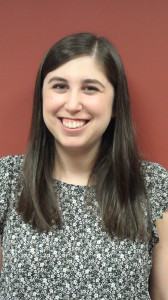by Stephanie Grossman, M.A.
I have always dreaded flying. I have a clear awareness that my fear of flying is highly irrational, and yet, it persists. Luckily, the fear has never been so strong as to prevent me from flying when necessary, but it does make me less likely to take a spontaneous trip, prefer shorter travel, and experience high anxiety for the duration of each flight. Last weekend I braced myself for 6 hours round-trip to Miami, preparing for anxiety, but praying for smooth flights. As I examined this fear, I have realized that in terms of my cognitions, I engage in selective attention and catastrophic thinking. I pay close attention to everything that happens on the plane: a new sound, a smell, the feeling of the plane dipping, and interpret each of these changes as potentially catastrophic—what if something is wrong with the plane and we crash!? On the one hand, these experiences are likely meaningless (they always have been), but even if they do indicate a problem, there’s nothing that I can do about it and attention doesn’t help. Behaviorally, I tend to engage in “safety behaviors” that maintain my anxiety. For example, whenever I catastrophically misinterpret one of the aforementioned “warning signs,” I will take out my headphones, turn off my music, and attend even further to the feared stimuli just to “be prepared.” Rationally, I know that planes are generally very safe, and also that worrying about the plane crashing and trying to pay attention to all of the sounds and sensations won’t change the outcome. During my last two flights, I tried to focus on this line of thinking: worrying serves no purpose, and tried to refrain from engaging in my safety behaviors. I forced myself to continue listening to music instead of focusing on the turbulence and on my own fear and false sense of control. It was difficult, and I still felt anxious, but I’m hopeful that the more I learn to stand my anxiety, divert my focus, and remember that worrying is a waste of time, I can endure these flights a little more easily.

